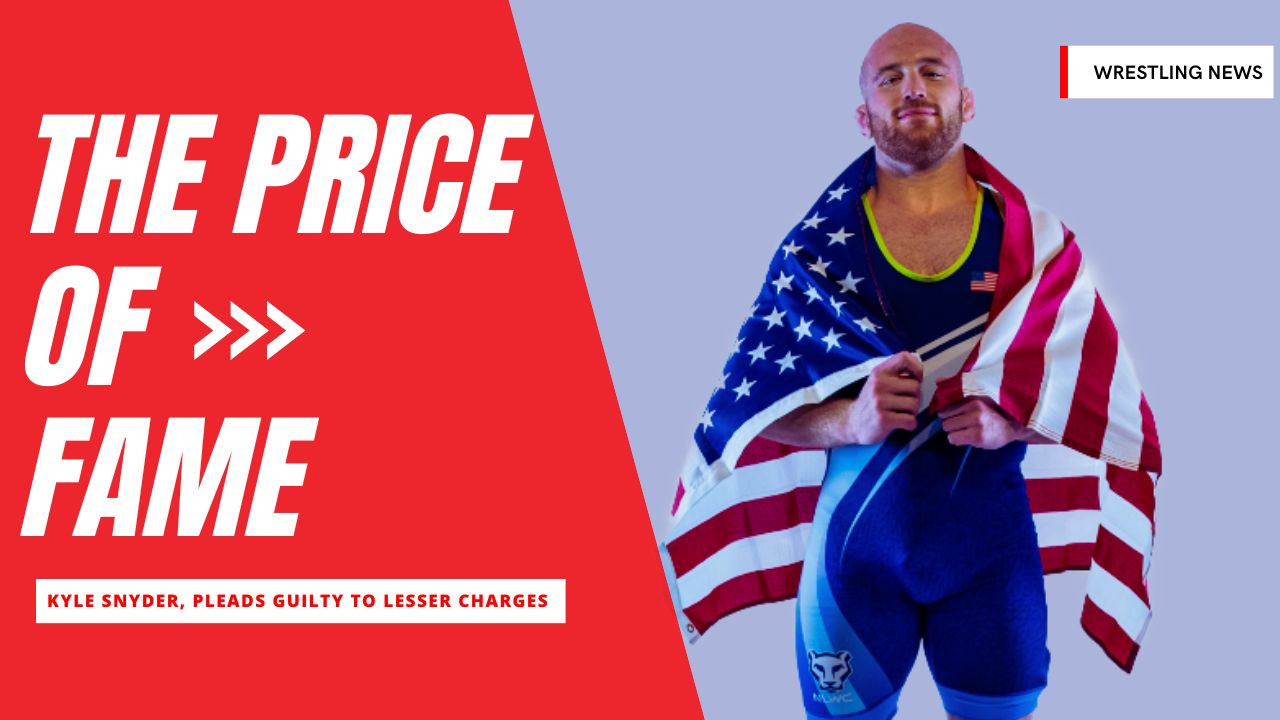A Champion at a Crossroads
In a stunning and deeply troubling turn of events, Olympic wrestling champion Kyle Snyder was arrested on May 9th for allegedly soliciting sexual acts from an undercover officer. The news has reverberated not only through the wrestling community but across the broader world of sports, where Snyder has long stood as a symbol of discipline, faith, and integrity. Now, those pillars are shaken—and the consequences could be profound.
Snyder’s achievements on the mat are nearly unparalleled: the youngest Olympic gold medalist in U.S. wrestling history, a multi-time world champion, and a cornerstone of Team USA. But more than that, he has built a public identity around his values—rooted in faith, hard work, and humility. That image now collides with serious allegations that place his personal life, athletic future, and public legacy in jeopardy.
At the heart of this fallout is something far more personal than medals or matches: Snyder is a husband and a father. How does a man who has built a life on such visible values reconcile a public failure of this magnitude with the trust and stability of his home? The most important battles ahead of him won’t take place under stadium lights or on a raised mat—they will unfold quietly, in living rooms, counseling sessions, and personal reflection. For Snyder, salvaging his marriage and protecting the wellbeing of his family will demand more strength than any world championship.

The Sport of Wrestling
The parallel to Tiger Woods is impossible to ignore. Once the face of golf, Woods’ own highly publicized personal scandal in 2009 triggered a cascade of repercussions—loss of sponsorships, withdrawal from competition, and years of public skepticism. While Woods eventually mounted a historic comeback, the journey was long, painful, and shaped by deep personal transformation. Could Snyder follow a similar arc? That depends not just on his athletic skill, but on his willingness to confront and correct the choices that brought him here.
From a competitive standpoint, the timing is equally disruptive. Snyder had recently qualified for Final X after winning the U.S. Open at 97 kg, positioning himself once again as the frontrunner to represent the U.S. on the world stage. However, following his arrest, he was suspended indefinitely by SafeSport, leaving his Final X status—and his entire competitive future—in limbo. Realistically, it’s hard to envision a scenario where he is cleared to compete in the near term. Wrestling, like all sports, must also stand on principle.
SafeSport Wrestling

Yet amidst the criticism and consequences, there’s also a broader moment of reflection for the wrestling community. This sport has always prided itself on producing athletes of character—men and women forged in the fire of discipline, humility, and sacrifice. When someone as high-profile as Snyder falters, it sends a ripple through the entire foundation. But it also forces us to separate the athlete from the human being. Every champion is still human—capable of greatness, but also of error.
This doesn’t excuse what happened. It doesn’t erase the pain it may have caused his family, or the confusion felt by young athletes who looked up to him. But it does create a moment for grace, reflection, and hopefully—redemption.
Ultimately, we should hope for a full reckoning, not a quiet cover-up. Kyle Snyder has a long road ahead. Whether that leads to a renewed life, restored trust, and eventually a return to wrestling, or whether it marks the end of his career as we know it, only time will tell. But if there’s one thing sports have taught us, it’s that comebacks don’t start on the mat—they start within.
How do we, as a community, support both accountability and redemption when our heroes fall?








